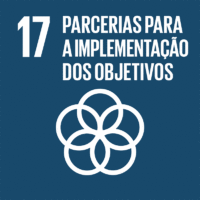Ciência_Iscte
Publicações
Descrição Detalhada da Publicação
Genetic diversity and population structure of Plasmodium falciparum over space and time in an African archipelago
Título Revista
Infection, Genetics and Evolution
Ano (publicação definitiva)
2016
Língua
Inglês
País
Estados Unidos da América
Mais Informação
Web of Science®
Scopus
Google Scholar
Esta publicação não está indexada no Overton
Abstract/Resumo
The archipelago of São Tomé and Principe (STP), West Africa, has suffered the heavy burden of malaria since the 16th century. Until the last decade, when after a successful control program STP has become a low transmission country and one of the few nations with decreases of more than 90% in malaria admission and death rates.
We carried out a longitudinal study to determine the genetic structure of STP parasite populations over time and space. Twelve microsatellite loci were genotyped in Plasmodium falciparum samples from two islands collected in 1997, 2000 and 2004. Analysis was performed on proportions of mixed genotype infections, allelic diversity, population differentiation, effective population size and bottleneck effects.
We have found high levels of genetic diversity and minimal inter-population genetic differentiation typical of African continental regions with intense and stable malaria transmission.
We detected significant differences between the years, with special emphasis for 1997 that showed the highest proportion of samples infected with P. falciparum and the highest mean number of haplotypes per isolate.
This study establishes a comprehensive genetic data baseline of a pre-intervention scenario for future studies; taking into account the most recent and successful control intervention on the territory.
Agradecimentos/Acknowledgements
--
Palavras-chave
Classificação Fields of Science and Technology
- Ciências Biológicas - Ciências Naturais
- Outras Ciências Médicas - Ciências Médicas
Contribuições para os Objetivos do Desenvolvimento Sustentável das Nações Unidas
Com o objetivo de aumentar a investigação direcionada para o cumprimento dos Objetivos do Desenvolvimento Sustentável para 2030 das Nações Unidas, é disponibilizada no Ciência_Iscte a possibilidade de associação, quando aplicável, dos artigos científicos aos Objetivos do Desenvolvimento Sustentável. Estes são os Objetivos do Desenvolvimento Sustentável identificados pelo(s) autor(es) para esta publicação. Para uma informação detalhada dos Objetivos do Desenvolvimento Sustentável, clique aqui.

 English
English



